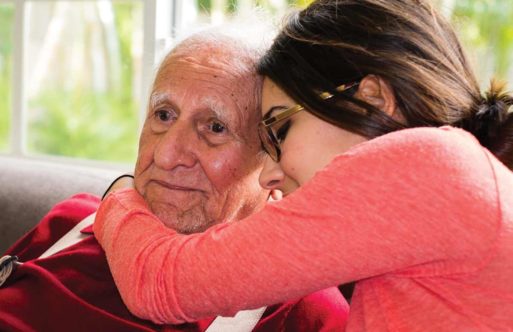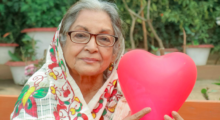A new study found that men with cancer were less likely than women to choose palliative care towards the end of life. The findings were published in the Journal of Pain and Symptom Management.
Previous research has suggested that men and people with low educational achievement are more likely to still be receiving curative treatment weeks before death. They were also shown to be less likely to accept palliative or hospice care. Researchers for the new study hypothesized that their work would confirm the same notions.
 Lead author Fahad Saeed, MD, and his colleagues used data from 383 cancer patients gathered during the Values and Options in Cancer Care (VOICE) study to test the hypothesis. During the VOICE study, patients were asked about their preferences for palliative care if they were informed that further curative treatment would be futile.
Lead author Fahad Saeed, MD, and his colleagues used data from 383 cancer patients gathered during the Values and Options in Cancer Care (VOICE) study to test the hypothesis. During the VOICE study, patients were asked about their preferences for palliative care if they were informed that further curative treatment would be futile.
Palliative care was described as care intended to provide comfort and improve quality of life, but not to cure. Patients ranged in age from 22 to 90 years. Most participants had attended college, and 55.1 percent were women.
Roughly 80 percent said they would definitely (45.2 percent) or possibly (33.9 percent) want palliative care if told that further curative treatment wouldn’t help. Women were three times as likely to prefer palliative care than men. Response options were: definitely no, possibly no, unsure, possibly yes and definitely yes.
“These gender differences may be explained by gender differences in role socialization,” the researchers wrote. “Men and women adopt beliefs about gender roles that reflect prevailing social norms. These beliefs guide decisions about socially acceptable and unacceptable attitudes such as being stoic, fearless, less expressive of symptoms, and invulnerable.”
Hypothesis Partially Confirmed
The researchers found that half of their hypothesis rang true. Their research showed that men are less likely to choose palliative care towards end of life than women. However, they found that educational attainment played no role in determining preference for palliative care.
Patients with a high school education or less and those with a college education had similar palliative care preferences.
 “It is not very likely, therefore, that education disparities in end-of-life care can be explained by education differences in preferences for palliative care,” the team concluded.
“It is not very likely, therefore, that education disparities in end-of-life care can be explained by education differences in preferences for palliative care,” the team concluded.
The study also suggested that younger adults were more likely to choose palliative care towards end of life than older adults. Researchers thought this could be because older patients may be unaware of palliative treatment.
“In a survey of patients across the adult age range,” the researchers wrote, “more than three-quarters of the sample had never heard of palliative care.”
Saeed and his team concluded that interventions to encourage men to accept palliative treatment could help the issue.
“These findings, which could partially account for the observed gender disparities in end-of-life care, underscore the need for future interventions to promote palliative care services among men,” the researchers wrote.

 New Study Suggests Men Less Likely To Choose Palliative Care
New Study Suggests Men Less Likely To Choose Palliative Care



 The Healing Sound of Singing Bowls
The Healing Sound of Singing Bowls
 “Summons” by Aurora Levins Morales
“Summons” by Aurora Levins Morales














